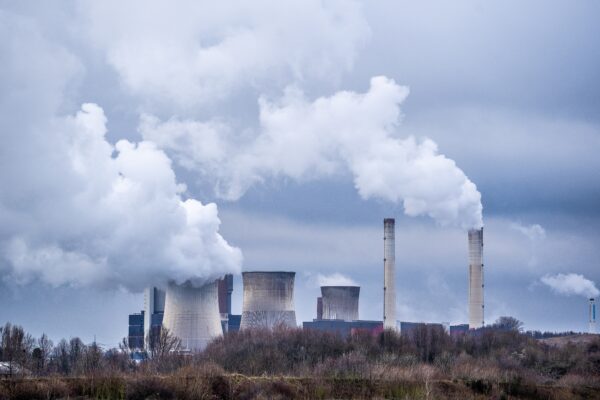Understanding Air Quality: The Invisible Factor Shaping Our Lives
Air quality, often taken for granted, plays a crucial role in our health, well-being, and overall quality of life. It’s an invisible factor that affects every breath we take, yet its importance is frequently overlooked. This blog delves into what air quality is, why it matters, the factors that influence it, and how we can improve it for a healthier future.
What is Air Quality?
Air quality refers to the condition of the air within our environment. It is determined by the presence of pollutants, which can be natural or man-made. These pollutants include particulate matter (PM), nitrogen dioxide (NO2), sulfur dioxide (SO2), carbon monoxide (CO), and ozone (O3). The concentration of these pollutants in the air dictates its quality.
Why is Air Quality Important?
The air we breathe directly affects our health. Poor air quality is associated with various health problems, including respiratory issues such as asthma and bronchitis, cardiovascular diseases, and even cancer. Children, the elderly, and individuals with existing health conditions are especially at risk. Additionally, air pollution harms ecosystems, damages crops, and exacerbates climate change.
Health Impacts:
- Respiratory Issues: Pollutants such as PM2.5 (particulate matter with a diameter of 2.5 micrometers or smaller) can penetrate deep into the lungs, causing inflammation and exacerbating conditions like asthma and chronic bronchitis.
- Cardiovascular Diseases: Long-term exposure to polluted air can lead to heart attacks, strokes, and hypertension. The fine particles can enter the bloodstream, causing systemic inflammation.
- Premature Death: According to the World Health Organization (WHO), air pollution is responsible for millions of premature deaths annually. It’s a leading environmental risk to health.
Environmental Impacts:
- Climate Change: Pollutants like carbon dioxide (CO2) and methane (CH4) are greenhouse gases that trap heat in the atmosphere, contributing to global warming and climate change.
- Ecosystem Damage: Air pollution can harm wildlife, damage forests, and acidify water bodies, disrupting ecosystems and biodiversity.
- Agricultural Effects: Ground-level ozone can damage crops, reducing agricultural yields and affecting food security.
Factors Influencing Air Quality:
Several factors contribute to air quality, including:
- Industrial Emissions: Factories and power plants emit large quantities of pollutants, including sulfur dioxide, nitrogen oxides, and particulate matter.
- Vehicle Emissions: Cars, trucks, and buses release carbon monoxide, nitrogen oxides, and hydrocarbons, which contribute significantly to urban air pollution.
- Natural Sources: Natural events like wildfires, volcanic eruptions, and dust storms can drastically reduce air quality.
- Weather Conditions: Weather patterns can influence the dispersion of pollutants. For example, calm winds can lead to the accumulation of pollutants, while rain can help wash them away.
- Population Density: High population density areas often experience poorer air quality due to increased human activities and higher vehicle usage.
Improving Air Quality:
Improving air quality requires concerted efforts from individuals, communities, and governments. Here are some strategies to enhance air quality:
Individual Actions:
- Use Public Transport: Reducing the number of vehicles on the road can significantly decrease emissions.
- Adopt Clean Energy: Using renewable energy sources such as solar and wind can reduce reliance on fossil fuels.
- Reduce, Reuse, Recycle: Minimizing waste and promoting recycling can lower emissions from waste management processes.
- Plant Trees: Trees absorb CO2 and other pollutants, helping to clean the air.
Community Efforts:
- Promote Green Spaces: Parks and green roofs can help filter air and provide a healthier environment.
- Support Local Clean Air Initiatives: Participate in and support local efforts to monitor and improve air quality.
Government Policies:
- Implement Emission Standards: Governments can enforce strict emission standards for industries and vehicles to reduce pollution.
- Invest in Public Transport: Developing efficient public transport systems can reduce the number of private vehicles on the road.
- Regulate Industrial Pollution: Implementing policies to control industrial emissions can significantly improve air quality.
- Monitor Air Quality: Establishing air quality monitoring networks can help track pollution levels and inform policy decisions.
Conclusion:
Air quality is a vital aspect of our environment that significantly impacts health, ecosystems, and climate. By understanding the factors that influence air quality and taking proactive steps at individual, community, and governmental levels, we can improve the air we breathe. Clean air is a fundamental right, and it’s our collective responsibility to ensure a healthier future for ourselves and generations to come.
FAQs:
- What exactly is air quality?
Air quality describes the cleanliness or pollution level of the air around us, based on the concentration of pollutants like particulate matter (PM), nitrogen dioxide (NO2), sulfur dioxide (SO2), carbon monoxide (CO), and ozone (O3).
- Why is air quality crucial?
Good air quality is vital for maintaining health, preventing respiratory and cardiovascular diseases, protecting ecosystems, preserving agricultural productivity, and combating climate change.
- What are the primary sources of air pollution?
Major sources of air pollution include industrial activities, vehicle emissions, natural events like wildfires and volcanic eruptions, and certain weather conditions that can spread pollutants.
- How does poor air quality affect human health?
Poor air quality can lead to respiratory problems such as asthma and bronchitis, cardiovascular diseases like heart attacks and strokes, and increase cancer risk. Vulnerable populations, including children, the elderly, and those with existing health issues, are particularly affected.
- What environmental impacts does air pollution have?
Air pollution harms ecosystems by damaging plants and wildlife, acidifying water bodies, and contributing to climate change through the emission of greenhouse gases.
- How can communities work to enhance air quality?
Communities can enhance air quality by creating more green spaces, supporting clean air initiatives, and promoting sustainable practices among residents.
- What measures can governments implement to improve air quality?
Governments can improve air quality by enforcing emission standards, regulating industrial pollutants, investing in public transportation systems, and setting up air quality monitoring networks.
- How can I find out about the air quality in my area?
You can check local air quality using online platforms, mobile apps, and government websites that provide real-time air quality indices and pollution data.
- What are some long-term strategies for improving air quality?
Long-term strategies include transitioning to renewable energy sources, enhancing energy efficiency, developing sustainable infrastructure, and implementing comprehensive policies to reduce emissions across various sectors.
- Are there concerns about indoor air quality?
Yes, indoor air quality can be compromised by sources like tobacco smoke, cleaning products, building materials, and inadequate ventilation. Improving indoor air quality involves regular cleaning, ensuring proper ventilation, and using air purifiers if needed.




